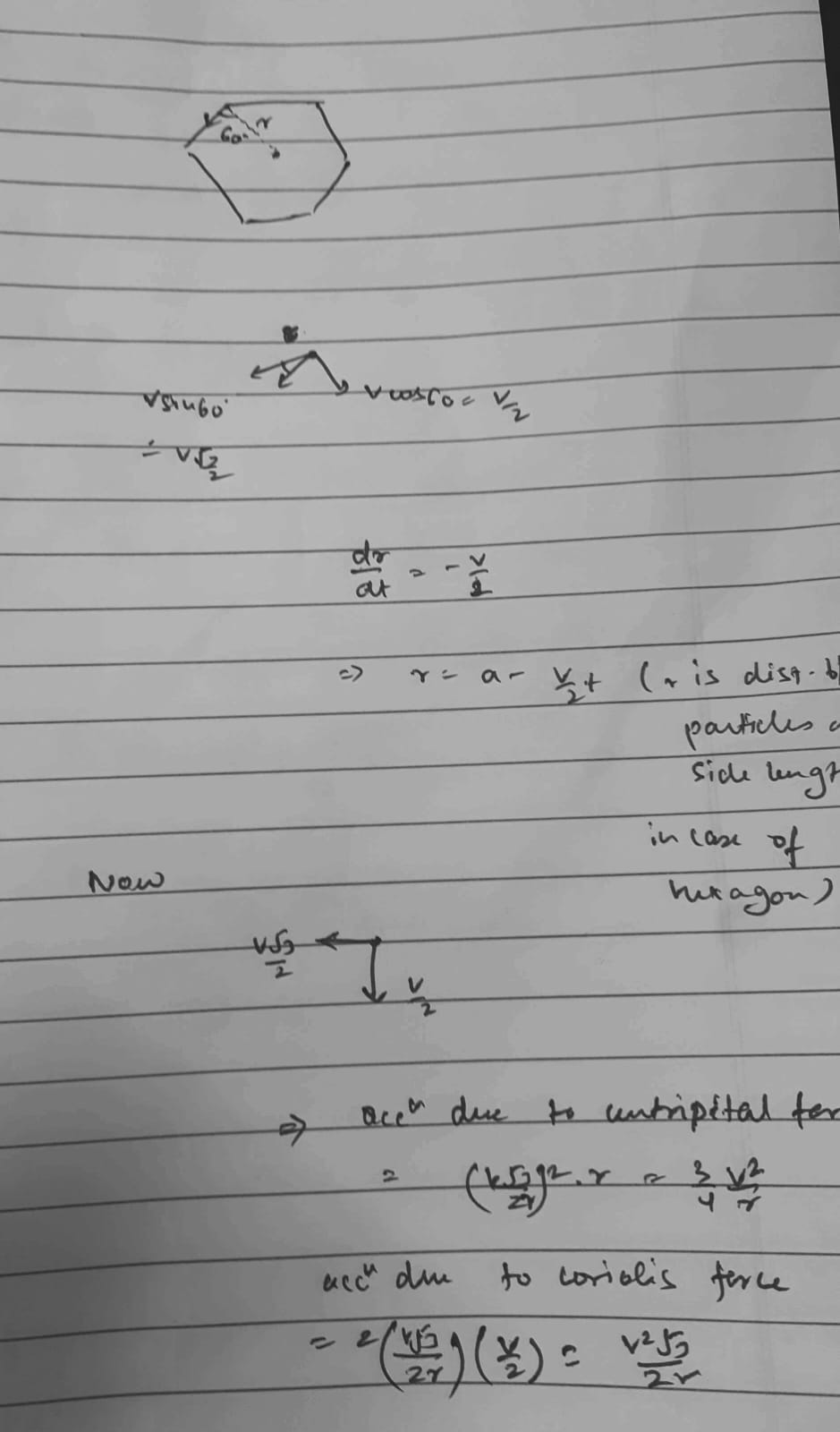16 Replies
@Gyro Gearloose
Note for OP
+solved @user1 @user2... to close the thread when your doubt is solved. Mention the users who helped you solve the doubt. This will be added to their stats.I was able to get separation using dx/dt = -v/2 and then integrating with proper limits
Can't figure out accn
Join each point with a line from the center. Then each point has some component of velocity perpendicular to this, which makes it rotate and one which pushes the point towards the center, making the shape smaller. At t=2a/v, find the length of the line joining center and point which will give separation between 2 points using geometry while also giving acceleration by v^2/r ig.
I just can't get this to work
Can u please share the working
@SirLancelotDuLac some help here too pls ...
Is the answer (a),(b),(c) and (d)?
yep all correct
Ah man, then there seems to be a slight problem. They have only taken coriolis acceleration while disregrading centripetal acceleration of particles.
Ohhh , how did u get the ans then
I only considered the Coriolis component.
Otherwise sqrt(7) ka factor was occuring.
This was as far as I solved.

still dont get your method 😭
did you try to gpt it?
Did you get the point where we took the components of Velocity? One of the components makes the hexagonal shape made by the points rotate, while the other tries to scale it down.
Since coriolis force is given by 2(r'×omega) we put the values of both
In this case r'=radial components of Velocity while omega is tangential component/r
https://youtu.be/YavUxx_Bneg?si=JzEc-762jHYJFhSY
you gotta watch this @hardcoreisdead
FloatHeadPhysics
YouTube
Challenging physics problem | 2D motion
Three particles A, B and C are situated at the vertices of an equilateral triangle ABC of side d at time t = 0. Each of the particles moves with constant speed v. A always has its velocity along AB, B along BC and C along CA. At what time will the particles meet each other?
This is a famous problem from the 2D kinetmatics (Motion in a plane). T...
It will really help
